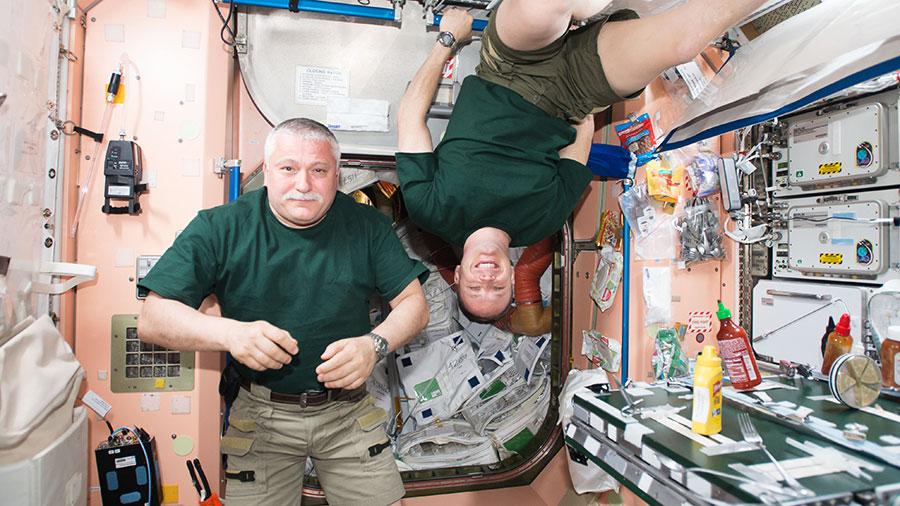
The five-member crew aboard the International Space Station was back at work Thursday researching how living in space affects the human body. Two of today’s experiments looked at how microgravity weakens bones and alters DNA.
Commander Peggy Whitson joined Flight Engineer Thomas Pesquet for the OsteoOmics bone loss study. The experiment compares bone loss in the free-floating environment of microgravity versus magnetic levitation on Earth and observes the molecular changes that place. Results may improve the health of crews in space and humans on Earth, possibly counteracting bone loss and preventing bone diseases.
Pesquet later checked samples for the Genes In Space experiment that is based on a winning proposal submitted during a student science competition. That study is testing new technology to track how a space mission alters an astronaut’s DNA and impacts their immune system.
The rest of the crew, including NASA astronaut Jack Fischer and cosmonauts Fyodor Yurchikhin and Oleg Novitskiy, split their time between loading a Russian cargo craft, crew orientation and systems maintenance.
Get weekly video highlights at: http://jscfeatures.jsc.nasa.gov/videoupdate/

Hi I’m Ariel and at my school we have been learning about the ISS and this is my first time on your blog. I live in Perenjori Western Australia and the blog I have just read about the bone loss etc. Will that be an effect on people living in space? Or is it a temporary thing? Being in space sounds like fun but it is also important to find information about space so keep having fun up there.
Our bones are adapted to living on Earth enabling humans to walk upright. In space, humans float in wieghtlessness thus an astronauts’s bones and muscles weaken without constant exercise and other countermeasures such as diet and medicine.